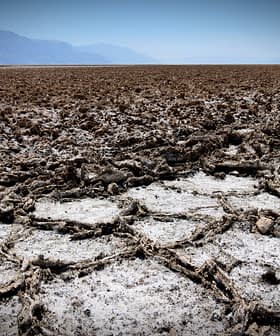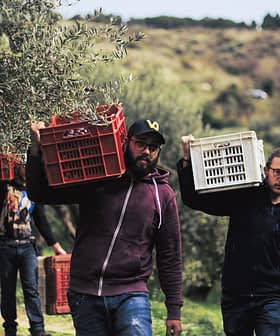World Bank Investing Nearly €30B to Improve Global Food Security
The International Bank for Reconstruction and Development has announced a global initiative to strengthen food security by deploying over €28 billion in projects over the next 15 months, focusing on farming development, vulnerable households, water management, and irrigation. The goal of the funding is to make global food systems more sustainable and resilient to risks like extreme weather, pathogens, conflicts, and trade disruptions, with the World Bank warning that the global food crisis is worsening and urging countries to increase supply and remove trade barriers.
A major global initiative to strengthen food security has been announced by the International Bank for Reconstruction and Development.
In the next 15 months, the World Bank will deploy more than €28 billion in a wide array of projects that fund farming development, cover vulnerable households against rising food prices and water management and irrigation projects.
Countries should make concerted efforts to increase the supply of energy and fertilizer, help farmers increase plantings and crop yields and remove policies that block exports and imports.
The bank said a portion of the investment would also support farmers and facilitate trade.
The goal of the funding is to strengthen global food systems to make them more sustainable and resilient to risks posed by extreme weather events, pathogens and diseases, conflicts and trade disruptions.
See Also:Ukraine Crisis Calls for Shift Away from Organic Farming, Syngenta CEO SaysBank officials also warned that the global food crisis is worsening.
“Food price increases are having devastating effects on the poorest and most vulnerable,” said David Malpass, the World Bank Group president. “To inform and stabilize markets, it is critical that countries make clear statements now of future output increases in response to Russia’s invasion of Ukraine.”
“Countries should make concerted efforts to increase the supply of energy and fertilizer, help farmers increase plantings and crop yields and remove policies that block exports and imports, divert food to biofuel or encourage unnecessary storage,” he added.
The World Bank is currently implementing an €11 billion investment plan with its partner countries. These funds are earmarked for curtailing the food security crisis.
At the 1996 World Food Summit, delegates approved a definition of food security which defined the term as “when all people, at all times, have physical and economic access to sufficient, safe and nutritious food that meets their dietary needs and food preferences for an active and healthy life.”
The bank’s first portion of the funds will mostly go to Africa and the Middle East, Eastern Europe, Central Asia, and South Asia.
Another €17.4 billion comes from the bank’s existing portfolio focused on projects related to food and nutrition security issues, covering agriculture and natural resources, nutrition, social protection and other sectors.
“This response will draw on the full range of bank financing instruments and be complemented by analytical work,” the World Bank said.
The institution added how the experience of the 2007/08 global food price crisis allowed the bank to develop new programs, which funded more than 100 projects in 49 countries to counteract the worst effect of the crisis.
“The World Bank also hosts the Global Agriculture and Food Security Program (GAFSP), which is an existing financial intermediary fund dedicated to improving food security in low-income countries and could be replenished to help fund the response to the current global food crisis,” the bank said.
Born in 1944 as a financial tool to fund post-World War II reconstruction, the World Bank has evolved into a multi-purpose global financial institution deeply involved in food systems.
Among the many projects financed by the bank, some are directed toward olive growing projects in developing countries, fighting the obesity epidemic, promoting health and countering the worst effects of climate change.
In the past 70 years, the World Bank has seen its financial commitment grow from €463 million in loans reported in 1947 to €56 billion in 2015. Its so-called “twin goals” include ending extreme poverty by 2030 and boosting the shared prosperity of the poorest 40 percent of the population in all countries.









